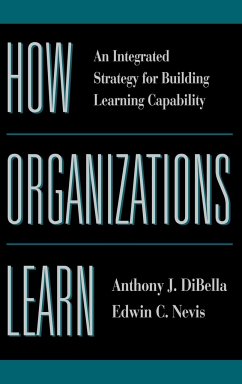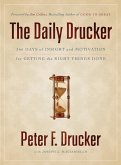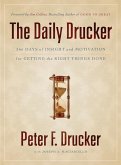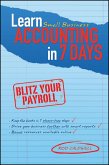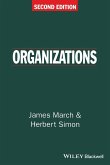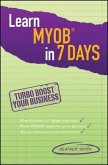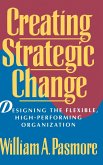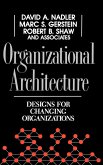Now more than ever, businesses and organizations must learn from their experiences and adapt to change in order to survive, grow, and thrive. But what exactly does it mean to be a ?learning organization?? Does your company?s learning portfolio match its strategy? And how can your company?s approach to learning ensure its ongoing success? This essential volume, the first integrated, comprehensive view of the subject, answers these and other critical questions and provides readers with clear concepts and practical techniques for increasing the learning capability of their companies. Here, authors Anthony J. DiBella and Edwin C. Nevis integrate the best of established organizational learning theory with their own cogent insights. Their original research in seven U.S. and European businesses has given them a compelling vision of how and why organizations learn. Working with executive managers, human resource and organization development consultants and trainers, and operations staff in more than twenty-five Fortune 500 companies, DiBella and Nevis have developed, tested, and refined the set of concepts, methods, and tools they present. DiBella and Nevis maintain that all organizations have learning capabilities and styles, which vary with individual corporate cultures, and show why distinctive styles should be regarded as sources of competitive advantage. They find that learning capabilities are developed as companies put certain prescriptive conditions, called Facilitating Factors, into place, and as changes in attitudes, behaviors, and structures occur. Businesses should not overlook existing capabilities, however; but should evaluate them in terms of an integrated framework?such as the the Learning Profile?one of the many valuable tools this book includes. From theory and research to practical applications, How Organizations Learn presents a productive framework for any organization that wants to learn more fully and adapt more quickly to the fast-changing marketplace. DiBella and Nevis advocate a strategic commitment to learning, suggesting that through such an approach, we can make not only our organizations but also our society more effective and rewarding. In this essential volume, authors DiBella and Nevis offer sound advice on how to increase the learning capabilties of your company. Readers will discover a powerful array of tools and techniques for leveraging an organization?s unique learning style, as well as a productive framework that will help your company learn more fully and adapt more quickly in today?s volatile marketplace. It's the most comprehensive work to date concerning this all-important competitive advantage.
Hinweis: Dieser Artikel kann nur an eine deutsche Lieferadresse ausgeliefert werden.
Hinweis: Dieser Artikel kann nur an eine deutsche Lieferadresse ausgeliefert werden.
?This work is a rare find in business literature: simultaneouslyhighly readable, practical, and academic. For the involved managerwho wants to help increase the long-term viability of his/herorganization, this book will prove to be highly important andvaluable.? (Herbert Rau, strategic marketing manager, FairchildSemiconductor)
?The authors accomplish an amazing feat in providing an insightfulsynthesis of numerous theories of the learning organization,ranging from Argyris to Senge and then moving rapidly beyond themthrough case studies to identify a set of how-to tools for leadersand change managers. For those interested in transformation, a mostvalued addition.? (James J. Gannon, senior vice president, HumanResource Development, Royal Bank of Canada)
?How Organizations Learn gets to the practicalities and realitiesof organizational learning. This is not a fad, it's the outline ofeffectiveness for organizations of the future.? (Patrick Canavan,corporate vice president and director of global leadership andorganization development, Motorola)
?This book should appeal to anyone looking for a single resourceabout the practice of assessing the learning capabilities oforganizations. The authors provide an elegant and comprehensiveapproach that is based on theory yet grounded in actual learningorganizations.? (Mark Van Buren, senior research officer, AmericanSociety for Training & Development)
?DiBella and Nevis provide a highly insightful framework foranalyzing and transforming a company's learning style. Provocativeand pragmatic!? (John Seely Brown, chief research scientist, XeroxPalo Alto Research Center)
?To understand and drive changes is difficult for everyone, bothindividuals and organizations. DiBella and Nevis supply CEOs andmanagers with a set of very useful tools to analyze and increasethe learning capability of their organizations and to balanceday-to-day decisions with the implementation of long-termstrategies.? (Mauro Mastrogiacomo, manager of human resources andorganizational development, Fiat Auto)
?The authors accomplish an amazing feat in providing an insightfulsynthesis of numerous theories of the learning organization,ranging from Argyris to Senge and then moving rapidly beyond themthrough case studies to identify a set of how-to tools for leadersand change managers. For those interested in transformation, a mostvalued addition.? (James J. Gannon, senior vice president, HumanResource Development, Royal Bank of Canada)
?How Organizations Learn gets to the practicalities and realitiesof organizational learning. This is not a fad, it's the outline ofeffectiveness for organizations of the future.? (Patrick Canavan,corporate vice president and director of global leadership andorganization development, Motorola)
?This book should appeal to anyone looking for a single resourceabout the practice of assessing the learning capabilities oforganizations. The authors provide an elegant and comprehensiveapproach that is based on theory yet grounded in actual learningorganizations.? (Mark Van Buren, senior research officer, AmericanSociety for Training & Development)
?DiBella and Nevis provide a highly insightful framework foranalyzing and transforming a company's learning style. Provocativeand pragmatic!? (John Seely Brown, chief research scientist, XeroxPalo Alto Research Center)
?To understand and drive changes is difficult for everyone, bothindividuals and organizations. DiBella and Nevis supply CEOs andmanagers with a set of very useful tools to analyze and increasethe learning capability of their organizations and to balanceday-to-day decisions with the implementation of long-termstrategies.? (Mauro Mastrogiacomo, manager of human resources andorganizational development, Fiat Auto)

